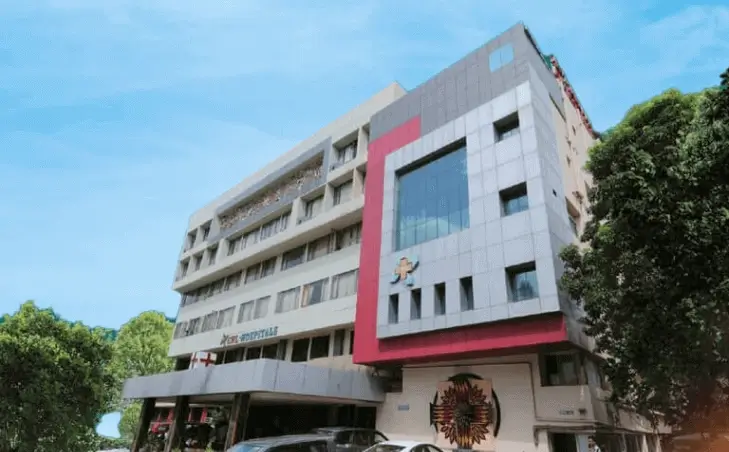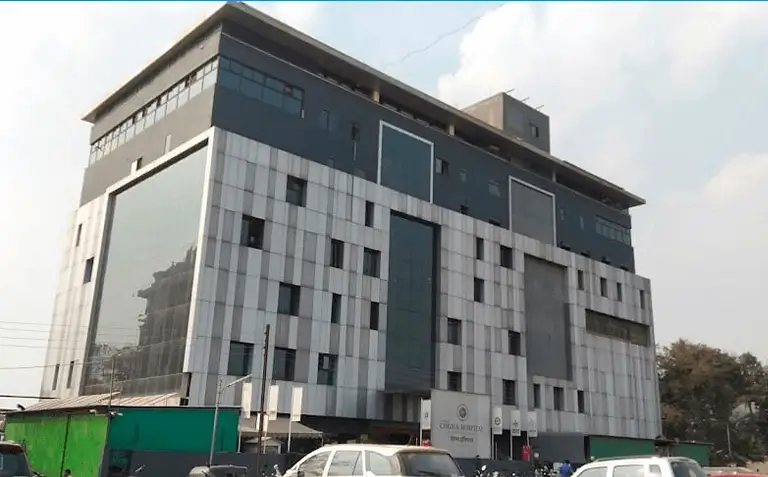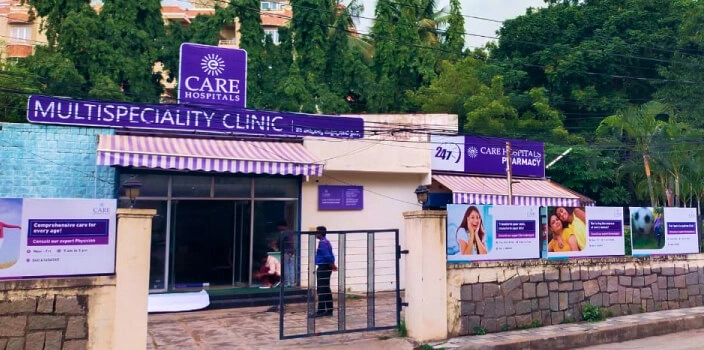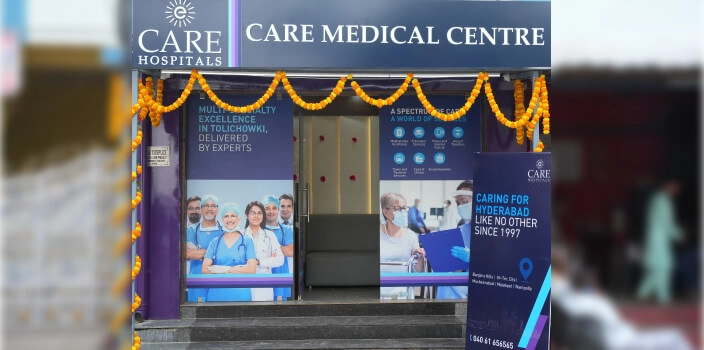-
Doctors
-
Specialities & Treatments
Centre of Excellence
Specialties
Treatments and Procedures
Hospitals & Directions HyderabadCARE Hospitals, Banjara Hills CARE Outpatient Centre, Banjara Hills CARE Hospitals, HITEC City CARE Hospitals, Nampally Gurunanak CARE Hospitals, Musheerabad CARE Hospitals Outpatient Centre, HITEC City CARE Hospitals, Malakpet
HyderabadCARE Hospitals, Banjara Hills CARE Outpatient Centre, Banjara Hills CARE Hospitals, HITEC City CARE Hospitals, Nampally Gurunanak CARE Hospitals, Musheerabad CARE Hospitals Outpatient Centre, HITEC City CARE Hospitals, Malakpet Raipur
Raipur
 Bhubaneswar
Bhubaneswar Visakhapatnam
Visakhapatnam
 Nagpur
Nagpur
 Indore
Indore
 Chh. Sambhajinagar
Chh. SambhajinagarClinics & Medical Centers
Book an AppointmentContact Us
Online Lab Reports
Book an Appointment
Consult Super-Specialist Doctors at CARE Hospitals

Best Hospital for Retrograde Intrarenal Surgery in Hyderabad
- Advanced Technology
- Shorter Hospital Stay
- Pre & Post-Operative Care
- All Insurance Accepted

Chat With Our Experts
Get second opinion on Whatsapp
25 lakhs+
Happy Patients
Experienced and
skilled surgeons
17
Health Care Facilities
Top most Referral Centre
for Complex Surgeries
Advanced RIRS Surgery
RIRS, or Retrograde Intrarenal Surgery, is a minimally invasive technique that is changing the game in kidney stone removal. We are at the forefront of this cutting-edge procedure at CARE Group Hospitals, offering patients in Hyderabad world-class care with reduced recovery times and improved outcomes.
Curious about how RIRS could benefit you? In this comprehensive guide, we will walk you through everything you need to know about RIRS surgery - from its advantages over traditional methods to what you can expect before, during, and after the procedure. Let's embark on this journey to better urological health together!
Why CARE Group Hospitals is Your Top Choice for RIRS Surgery in Hyderabad
CARE Hospitals stands out as the best hospital for Retrograde Intrarenal surgery due to several key factors:
- A team of highly skilled urologists with extensive experience in RIRS procedures
- State-of-the-art flexible ureteroscopes and laser lithotripsy systems
- Comprehensive patient care approach, from initial consultation to post-operative follow-up
- Multidisciplinary collaboration- ensuring optimal patient outcomes
- Proven track record of successful procedures with high patient satisfaction rates
- Commitment to minimally invasive techniques for faster recovery and reduced complications
Best Retrograde Intrarenal Surgery Doctors in India


Cutting-edge Surgical Innovations at CARE Hospital
At CARE Hospitals, we leverage the latest advancements in RIRS technology to ensure advanced RIRS surgery:
- High-definition digital flexible ureteroscopes
- Advanced holmium laser systems for precise stone fragmentation
- 3D imaging for accurate surgical planning
- Specialised stone retrieval devices
- Innovative ureteral access sheaths for improved irrigation and visibility
Conditions for RIRS Surgery
Doctors recommend RIRS for various kidney stone conditions, including:
- Small to medium-sized kidney stones (typically up to 2 cm)
- Lower pole kidney stones
- Multiple kidney stones
- Stones in patients with bleeding disorders
- Cases where other stone removal methods have failed
- Stones in anatomically challenging locations
Get Right Diagnosis, Treatment & Cost Estimate Details to
Make a Fully Informed Decision.
Types of RIRS Procedures
CARE Hospitals offers a range of RIRS techniques tailored to each patient's specific needs:
- Standard RIRS with Laser Lithotripsy: Utilises a flexible ureteroscope to access the kidney and a laser to fragment and remove stones
- RIRS with Basket Extraction: After the stone fragmentation, doctors use a specialised basket to grasp and remove stone fragments
- RIRS with Ureteral Access Sheath: A sheath is inserted into the ureter to provide better access
- Bilateral RIRS: A single RIRS session can treat kidney stones in both kidneys simultaneously
Pre-surgery Preparation
preparation is key to a successful RIRS procedure. Our team guides patients through a comprehensive pre-operative process:
- Complete medical history review and evaluation of overall health and fitness for surgery
- Blood picture, urine analysis, and kidney function tests
- Detailed urological assessment and kidney imaging to assess stone size and location
- Medication review and adjustment, such as antibiotics for infection or temporary stopping or adjusting the dosage of blood thinners
- Specific fasting instructions for the day before and the morning of surgery
- Recommendation for avoiding alcohol and smoking before surgery
RIRS Surgery Procedure
The RIRS procedure at CARE Hospitals typically involves:
- Administration of anaesthesia (general or spinal)
- Insertion of a thin, flexible ureteroscope through the urethra and ureter into the kidney
- Visualisation of the stone using the ureteroscope’s camera
- Fragmentation of the stone using laser energy
- Removal of stone fragments using specialised retrieval devices
- Placement of a temporary stent, if necessary, to aid in healing
The average RIRS surgery time is 1 to 2 hours, depending on the location and size of the stone.
Post-surgery Recovery
Recovery following RIRS is generally quick and comfortable. At CARE Hospitals, we provide:
- Specialised post-operative care to ensure comfort and quick recovery
- Extensive pain management therapy for pain after RIRS surgery
- Stent management and removal instructions
- Personalised advice on resuming daily activities
- Follow-up appointments to monitor progress
Most patients can return home within 24 hours and resume normal activities within a few days to a week.
Risks and Side Effects of RIRS Surgery
While RIRS is generally safe, the following are some potential RIRS surgery side effects:
- Temporary discomfort or pain
- Urinary tract infection
- Bleeding (usually minor)
- Ureteral injury (rare)
- Stone fragments requiring additional procedures

Benefits of RIRS Surgery
RIRS offers numerous advantages, including:
- Minimally invasive with no incisions
- High stone clearance rates
- Shorter hospital stay and quicker recovery
- Reduced risk of complications than traditional surgery
- Suitable for patients with bleeding disorders or on blood thinners
- Effective for treating stones in various locations within the kidney
Insurance Assistance for RIRS Surgery
Our dedicated patient support team assists with the following:
- Insurance coverage verification for RIRS surgery
- Pre-authorisation processes
- Explanation of all-inclusive expenses
- Exploration of financial aid options for eligible patients
Second Opinion for RIRS Surgery
CARE Hospitals offers comprehensive second opinion services, including:
- Review of medical records and diagnostic tests
- A thorough discussion of alternative treatments like ESWL, PCNL
- Personalised treatment recommendations
- Discussion of potential risks and complications of RIRS surgery
- Addressing all patient concerns and queries
- Advice on precautions after RIRS surgery
Conclusion
RIRS surgery represents a significant leap forward in kidney stone treatment. This minimally invasive procedure offers patients shorter recovery times and improved outcomes, making it an attractive treatment option for those suffering from this painful condition.
At CARE Group Hospitals in Hyderabad, our team of expert urologists combines cutting-edge technology with compassionate care to provide world-class treatment tailored to each patient's unique needs. If you are struggling with kidney stones, don't let pain dictate your life. Take your first step towards relief by scheduling a consultation with our specialists. We are here to answer your questions and guide you through your treatment journey.
RIRS Surgery Hospitals in India
-
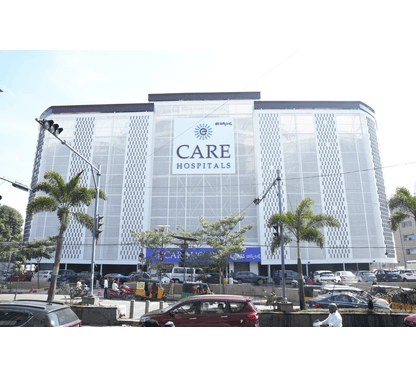
CARE Hospitals, Banjara Hills, Hyderabad
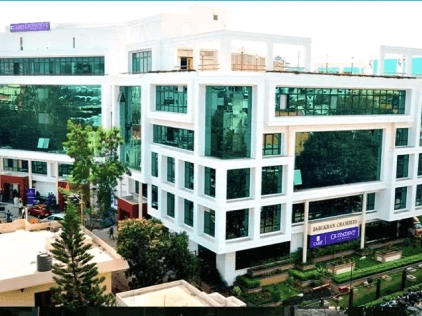
CARE Hospitals Outpatient Centre, Banjara Hills, Hyderabad
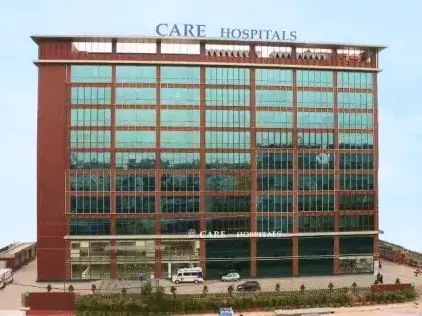
CARE Hospitals, HITEC City, Hyderabad
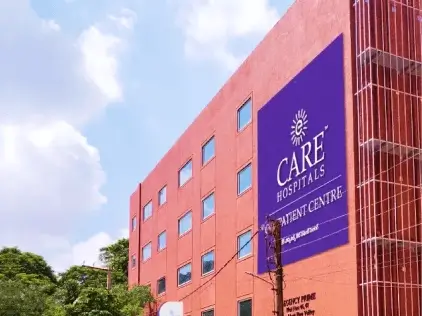
CARE Hospitals Outpatient Centre, HITEC City, Hyderabad
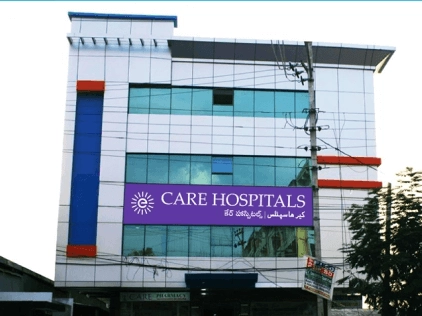
Gurunanak CARE Hospitals, Musheerabad, Hyderabad
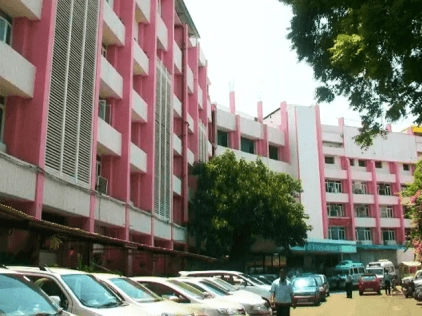
CARE Hospitals, Nampally, Hyderabad
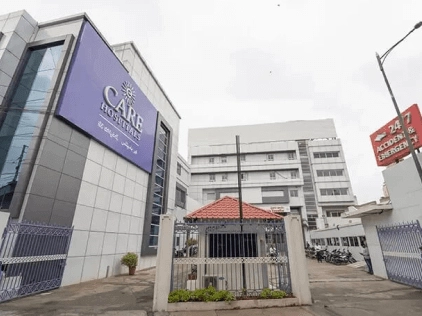
CARE Hospitals, Malakpet, Hyderabad
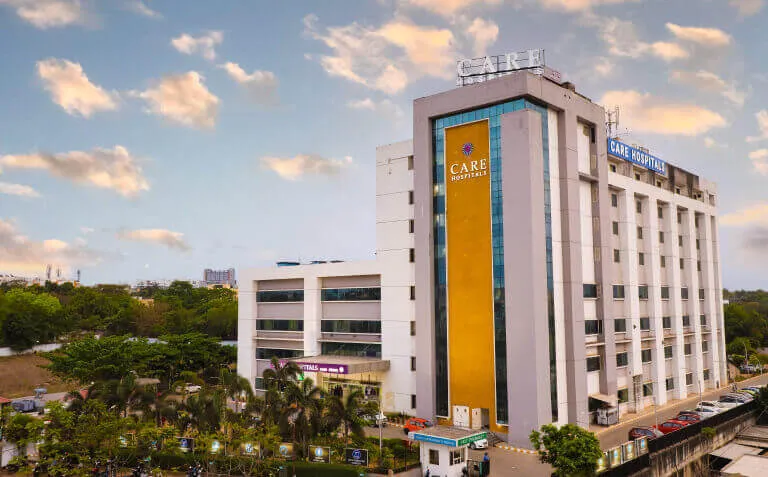
CARE Hospitals, Bhubaneswar
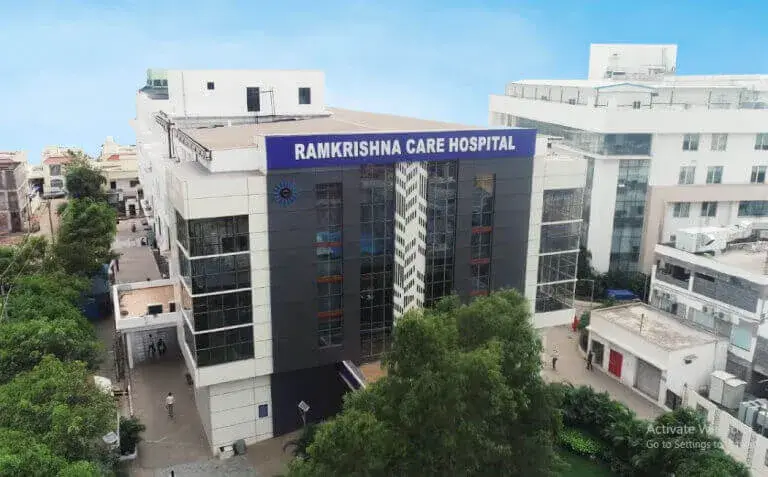
Ramkrishna CARE Hospitals, Raipur
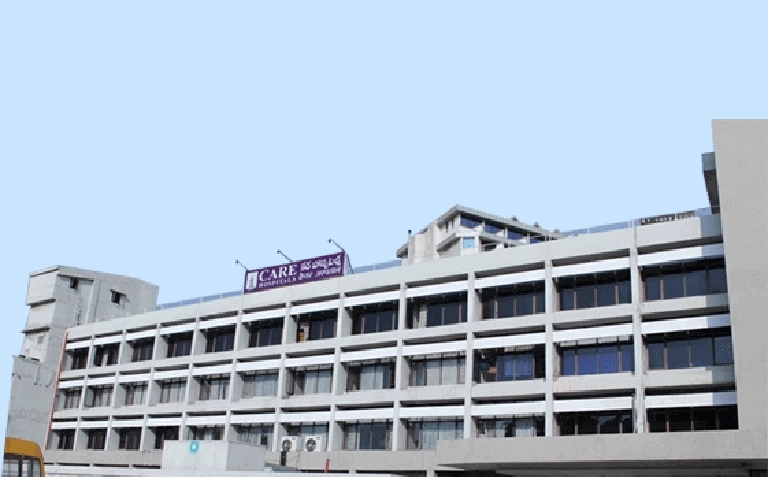
CARE Hospitals, Ramnagar, Visakhapatnam
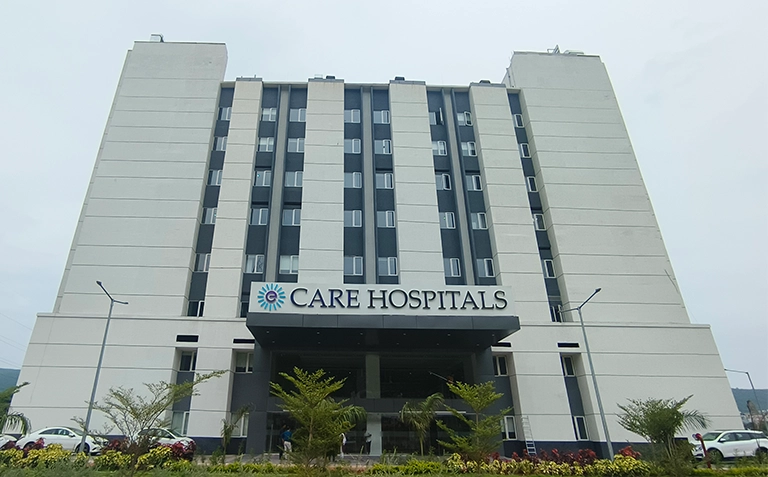
CARE Hospitals, Health City, Arilova
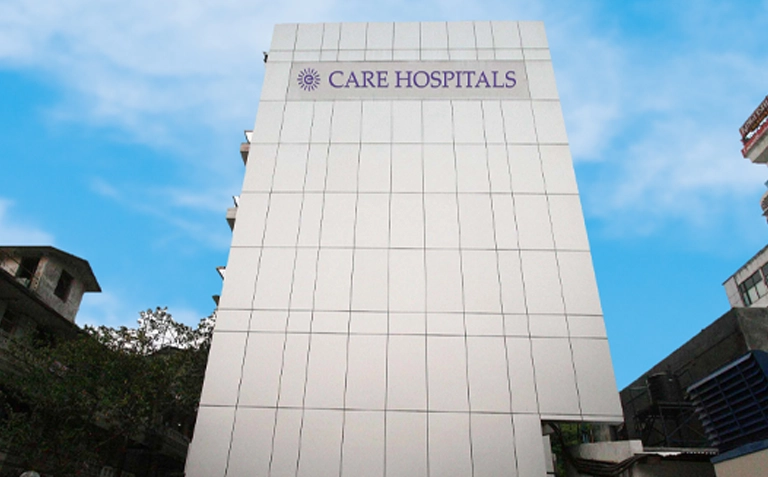
Ganga CARE Hospital Limited, Nagpur
Related Surgeries
- Best Hospitals for Cesarean Delivery in Hyderabad
- Best Hospital for Vaginal Hysterectomy in Hyderabad
- Best Hospital for Cholecystectomy Surgery in Hyderabad
- Best Hospital for Colectomy Surgery in Hyderabad
- Best Hospitals for Colostomy Surgery in Hyderabad
- Best Hospitals for Laparotomy Surgery in Hyderabad
- Best Hospital for Parotidectomy Surgery in Hyderabad
- Best Hospitals for Ovarian Cancer Surgery in Hyderabad
- Best Hospitals for Pancreatectomy Surgery in Hyderabad
- Best Hospitals for Sigmoidoscopy Surgery in Hyderabad
- Best Hospitals for Endometrial Cancer Surgery in Hyderabad
- Best Hospitals for Whipple Surgery in Hyderabad
- Best Hospitals for Thyroidectomy Surgery in Hyderabad
- Best Hospitals for Cardioversion Procedures in Hyderabad
- Best Hospitals for Pacemaker Insertion Surgery in Hyderabad
- Best Hospital for Endovenus Laser Surgery in Hyderabad
- Best Hospitals for Atrial Septal Defect Surgery in Hyderabad
- Best Hospital for Video-Assisted Thoracoscopic Surgery in Hyderabad
- Best Hospital for Ventricular Septal Defect Surgery in Hyderabad
- Best Hospital for Heart Valve Replacement Surgery in Hyderabad
- Best Hospital for Thoracotomy Surgery in Hyderabad
- Best Hospitals for Pericardiectomy Surgery in Hyderabad
- Best Hospitals for Aortic Valve Replacement Surgery in Hyderabad
- Best Hospitals for Mitral Valve Replacement Surgery in Hyderabad
- Pneumonectomy Surgery in Hyderabad
- Spinal Fusion Surgery in Hyderabad
- Best Hospitals for Ankle Surgery in Hyderabad
- Best hospital for carpal tunnel release surgery in Hyderabad
- Best Hospitals for Ligament Repair Surgery in Hyderabad
- Best Hospitals for Elbow Surgery in Hyderabad
- Best Hospitals for Arthroscopic Meniscal Repair Surgery in Hyderabad
- Best Hospitals for Laminectomy Surgery in Hyderabad
- Best Hospital for Bladder Suspension Surgery in Hyderabad
- Best Hospital for Oesaophagectomy Surgery in Hyderabad
- Best Hospitals for Roux-en-Y Gastric Bypass in Hyderabad
- Best Hospitals for Small Bowl Resection in Hyderabad
- Best Hospitals for Vasectomy in Hyderabad
- Best Hospital for Tubal Ligation Surgery in Hyderabad
- Best Hospitals for Endometrial Ablation Surgery in Hyderabad
- Best Hospital for Arthroscopy Surgery in Hyderabad
- Best Hospital for Choledochocystectomy Surgery in Hyderabad
- Best Hospital for Choledochojejunostomy Surgery in Hyderabad
- Best Hospital for Choledocoduodenostomy Surgery in Hyderabad
- Best Hospital for Circumcision Surgery in Hyderabad
- Best Hospital for DJ Stent Removal Surgery in Hyderabad
- Best Hospital for Fistula Surgery in Hyderabad
- Best Hospital for Hiatus Hernia Surgery in Hyderabad
- Best Hospital for Incisional Hernia Surgery in Hyderabad
- Best Hospital for Laparoscopic Hysterectomy Surgery in Hyderabad
- Best Hospital for Laser Prostatectomy Surgery in Hyderabad
- Best Hospital for Open Reduction Internal Fixation (ORIF) Surgery in Hyderabad
- Best Hospital for PCNL Surgery in Hyderabad
- Best Hospital for Penile Implant Surgery in Hyderabad
- Best Hospital for Piles Surgery in Hyderabad
- Best Hospital for Pilonidal Sinus Surgery in Hyderabad
- Best Hospital for Peroral Endoscopic Myotomy Surgery in Hyderabad
- Best Hospital for Retrograde Intrarenal Surgery in Hyderabad
- Best Hospital for Spine Decompression Surgery in Hyderabad
- Best Hospital for Squint Eye Surgery in Hyderabad
- Best Hospital for Thyroplasty Surgery in Hyderabad
- Best Hospital for Turp Surgery in Hyderabad
- Best Hospital for Ureteroscopic lithotripsy Surgery in Hyderabad
- Best Hospital for Vitrectomy Surgery in Hyderabad
- Best Hospital for VP Shunt Surgery in Hyderabad
- Best Hospital for Wisdom Tooth Surgery in Hyderabad
- Best Hospitals for Oophorectomy in Hyderabad
Frequently Asked Questions
Retrograde Intrarenal Surgery (RIRS) is a minimally invasive treatment procedure that uses a thin, flexible scope inserted through the urinary tract to treat kidney stones.
The RIRS procedure typically takes 1 to 2 hours, depending on the stone size and location.
While generally safe, risks may include temporary discomfort, minor bleeding, and urinary tract infection. Our team thoroughly discusses all potential risks before the procedure.
Most patients can return home within 24 hours and resume normal activities within a few days to a week, significantly faster than traditional kidney stone surgery.
Yes, RIRS is considered very safe when performed by experienced urologists like those at CARE Hospitals. It often has fewer complications than traditional surgery.
Most patients experience minimal discomfort post-surgery that can be managed through pain medications. Our pain management protocols ensure patient comfort throughout recovery.
While it addresses a significant health issue, RIRS is considered a minimally invasive procedure compared to traditional open kidney stone surgery.
Most patients can return to light activities within a few days and normal routines within a week. We provide personalised guidance for each patient's recovery.
Our team provides round-the-clock post-operative care and is fully equipped to promptly and effectively manage complications.
Many insurance plans cover RIRS. Our dedicated patient support team will assist you in verifying your surgery coverage and understanding your benefits.
There is no strict age limit for RIRS. The decision is based on overall health, stone characteristics, and potential benefits versus risks. Our urologists assess each case individually to determine the most appropriate treatment approach.
Still Have a Question?



















